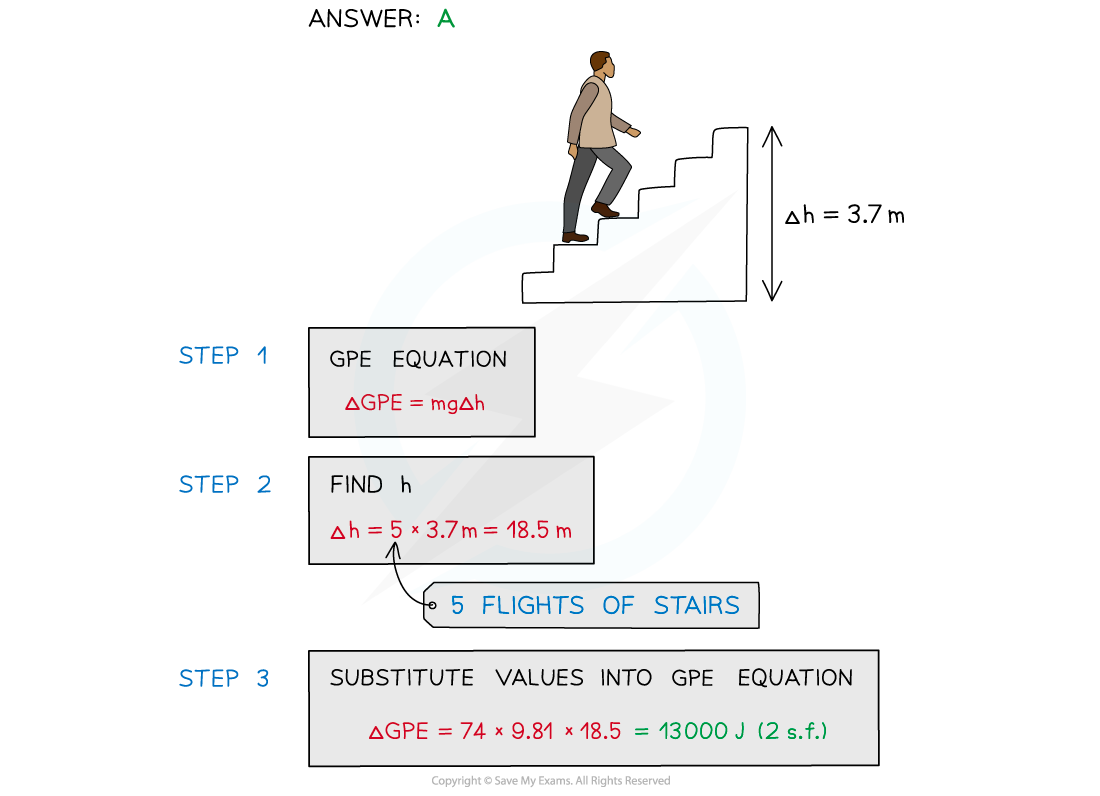Gravitational Potential Energy (Edexcel International A Level (IAL) Physics): Revision Note
Exam code: YPH11
Gravitational Potential Energy
Gravitational potential energy (usually written Ep, but sometimes GPE) is energy stored in a mass due to its position in a gravitational field
If a mass is lifted up, it will gain Ep (converted from other forms of energy)
If a mass falls, it will lose Ep (and be converted to other forms of energy)
The equation for gravitational potential energy for energy changes in a uniform gravitational field is:


Gravitational potential energy (GPE): The energy an object has when lifted up
The potential energy on the Earth’s surface at ground level is taken to be equal to 0
This equation is only relevant for energy changes in a uniform gravitational field (such as near the Earth’s surface)
Derivation of GPE Equation
When a heavy object is lifted, work is done since the object is provided with an upward force against the downward force of gravity
Therefore, energy is transferred to the object
This equation can therefore be derived from the work done

Worked Example
To get to his apartment a man has to climb five flights of stairs.
The height of each flight is 3.7 m and the man has a mass of 74 kg.
What is the approximate gain in the man's gravitational potential energy during the climb?
A. 13 000 J
B. 2700 J
C. 1500 J
D. 12 500 J

Examiner Tips and Tricks
Gravitational potential energy questions often use falling objects, where you are expected to realise that, since energy is conserved, the gravitational potential energy at the start is equal to the kinetic energy at the end.

Unlock more, it's free!
Did this page help you?